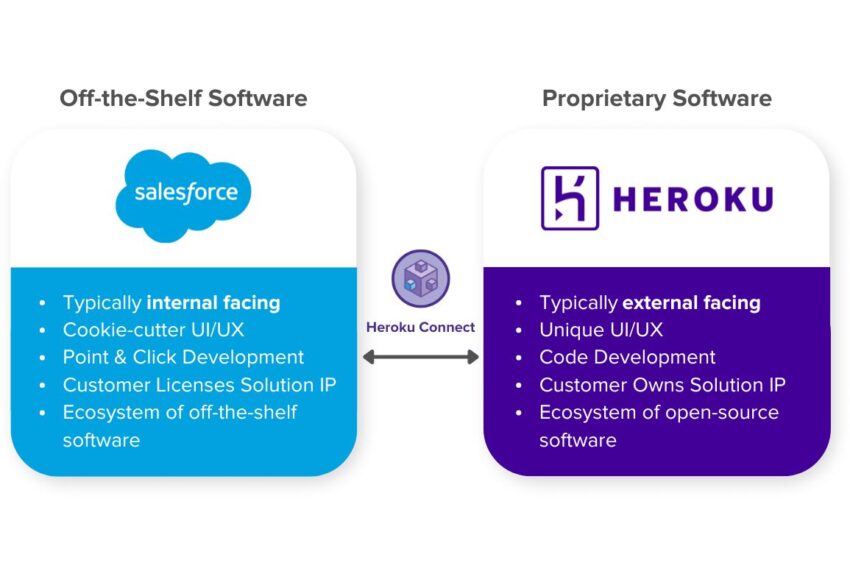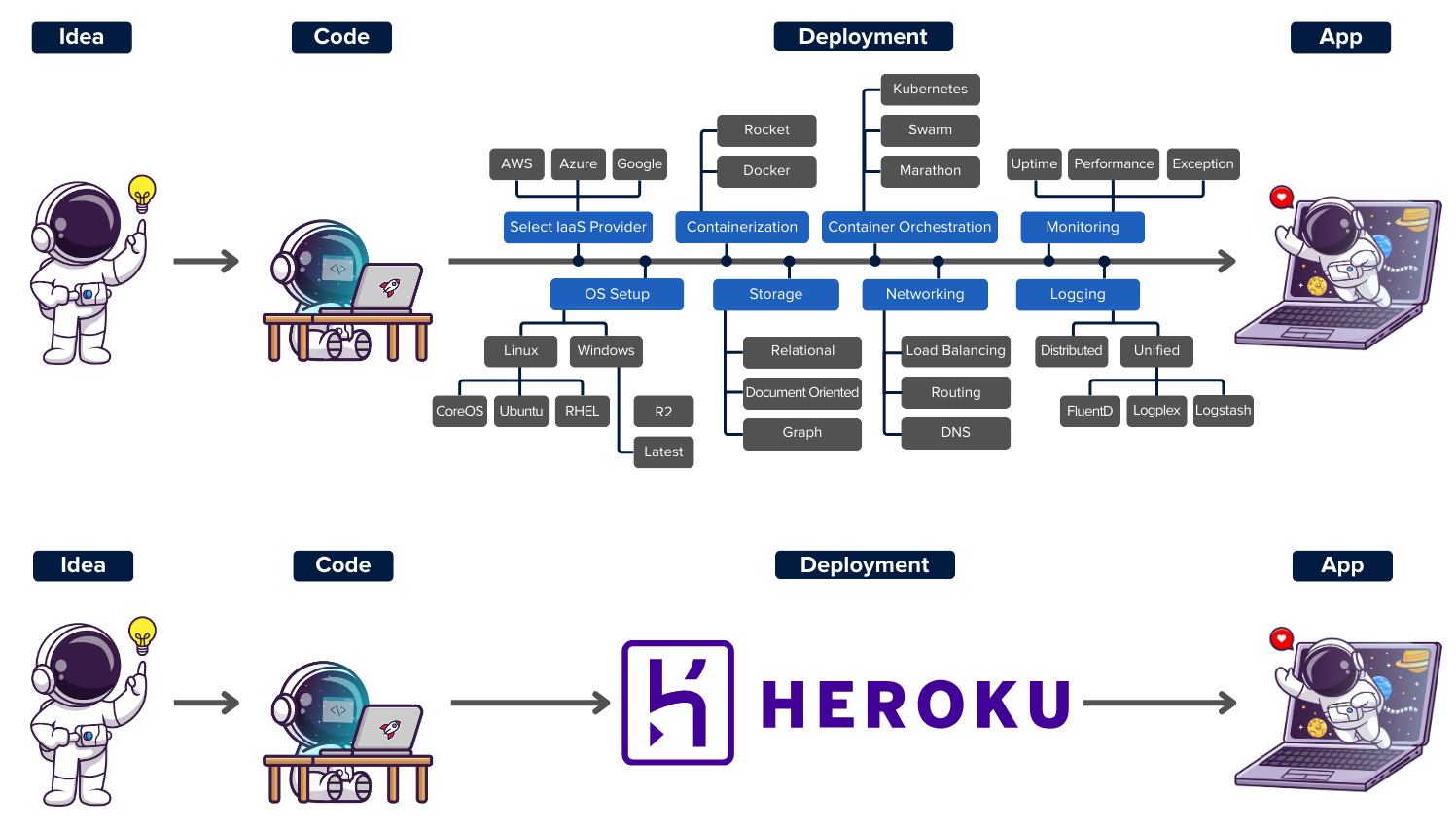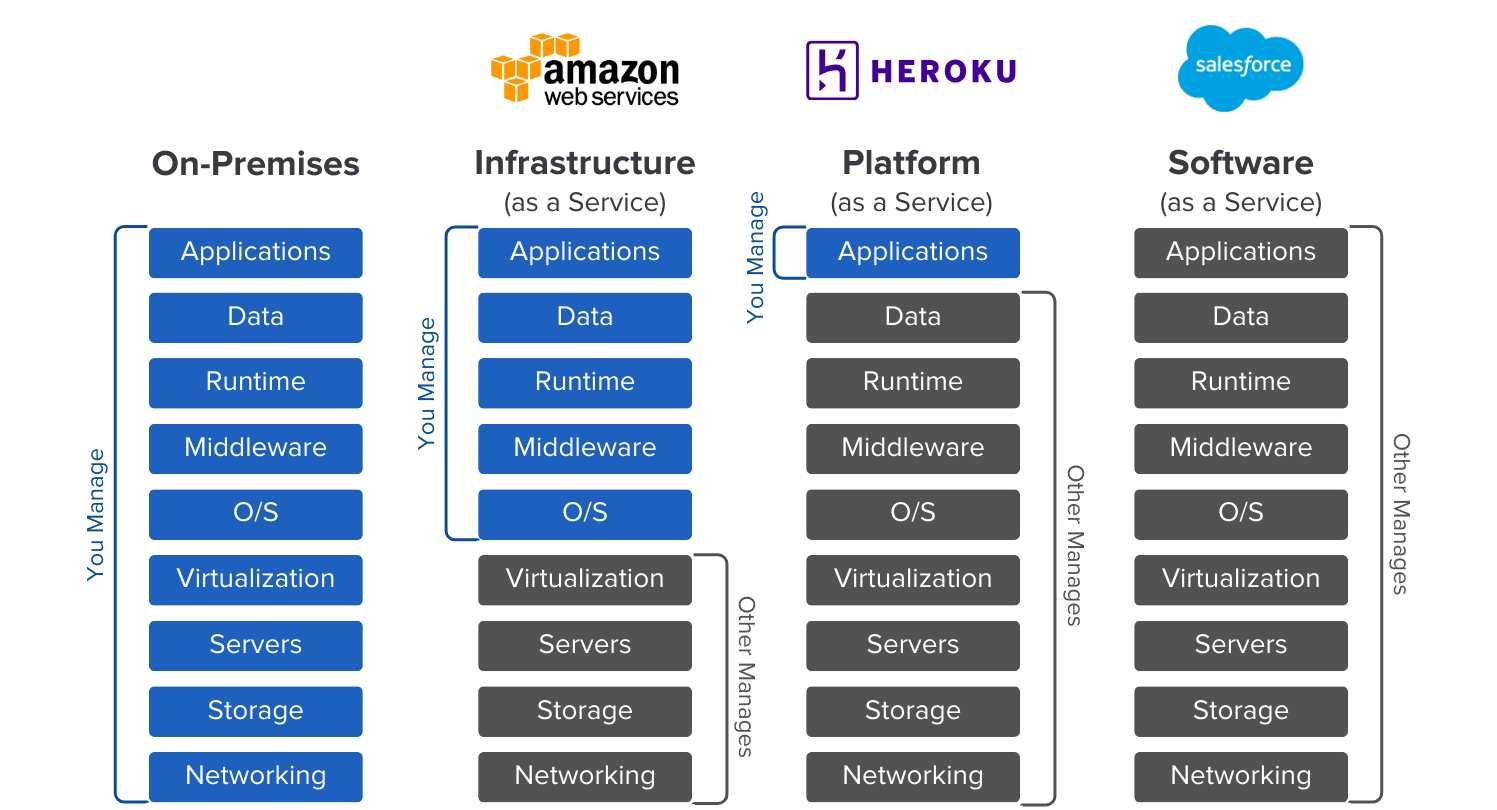
Save millions by lowering DevOps costs and building better digital products for your business and consumers with Heroku app development.
Heroku is a developer-friendly platform-as-a-service (PaaS) that handles your infrastructure so your team can focus entirely on building great apps. With Heroku web hosting, you don’t need to manage servers, configure networking rules, or worry about load balancing and security. Our expert team streamlines your development with Heroku app deployment and scaling strategies that accelerate delivery and reduce costs.

Salesforce offers powerful, off-the-shelf digital products for business operations. But when you want to build something unique, Salesforce integration with Heroku lets you create enterprise-grade apps in a fully customizable, code-based environment.
With Heroku Connect, your Heroku app can seamlessly sync with your Salesforce CRM, giving you real-time data and powerful user experiences without relying on third-party infrastructure. Plus, you retain complete ownership of the application.
Heroku app development gives you full control over your UI/UX and application layer while eliminating the burden of backend complexity. This streamlines development, shortens time to market, and frees your team to focus on features that drive business growth.

Compared to platforms like AWS, where you’re responsible for middleware, operating systems, and compliance, Heroku is a strong choice for ease, speed, and developer productivity. Using web development platforms like Heroku, businesses can focus entirely on building modern, secure apps without the infrastructure overhead.

With simplified deployment, integrated data layers via Heroku Postgres, and reliable Heroku hosting, companies experience faster innovation cycles and measurable growth.
Many stakeholders love Heroku for its ability to simplify application development and web hosting, providing a secure and scalable platform that enables quick innovation and seamless integration. Heroku app development allows businesses to focus on core objectives while ensuring top-notch security and efficiency.
Partner with us to develop technology to grow your business.